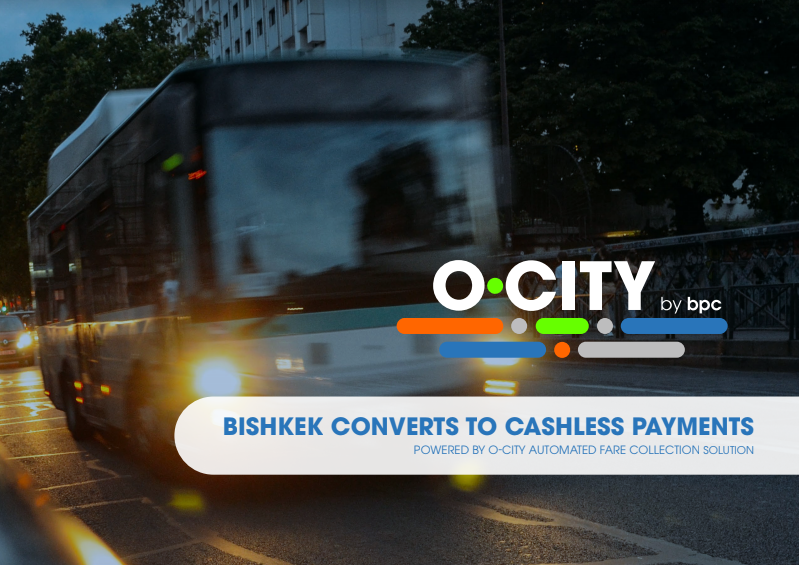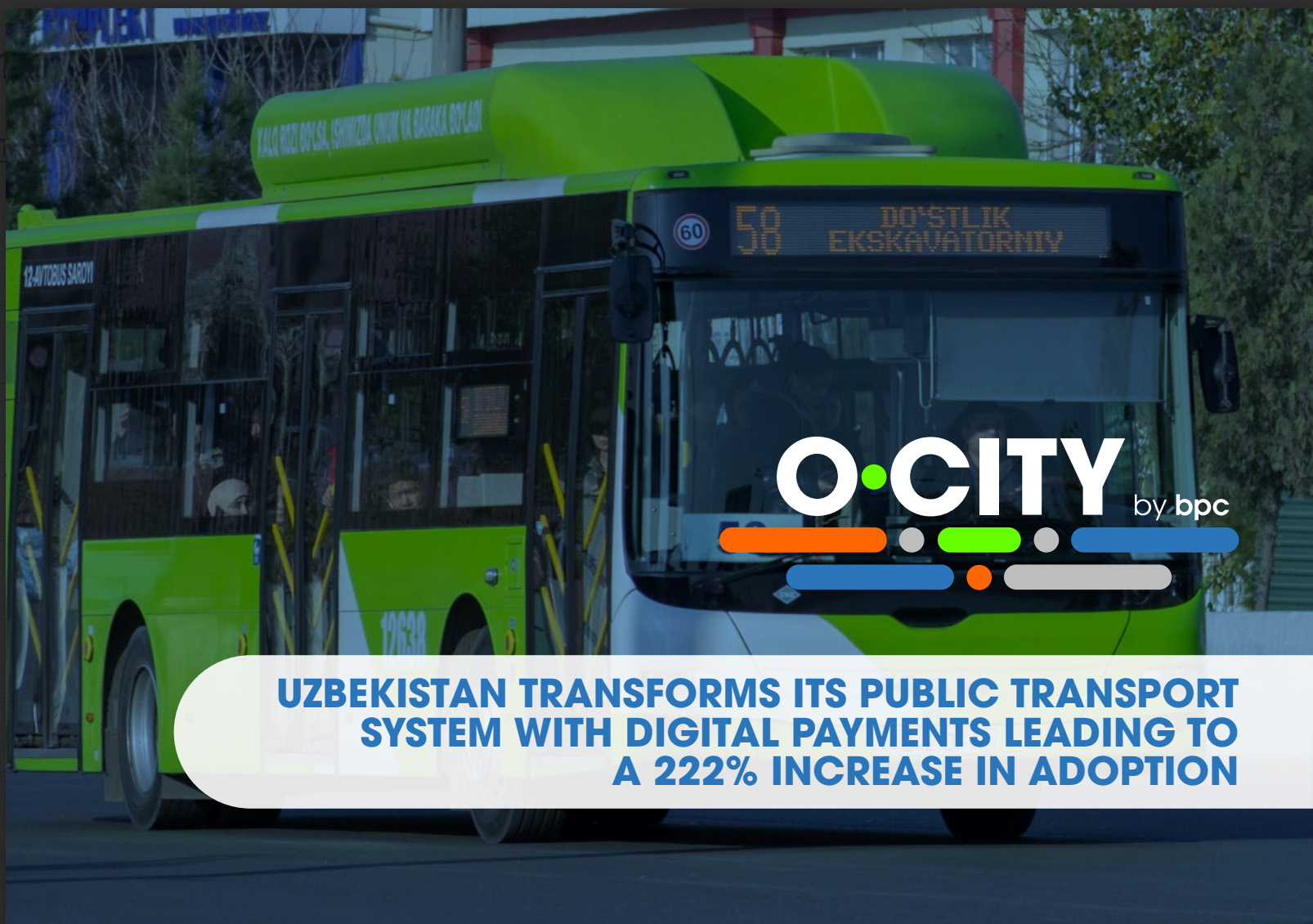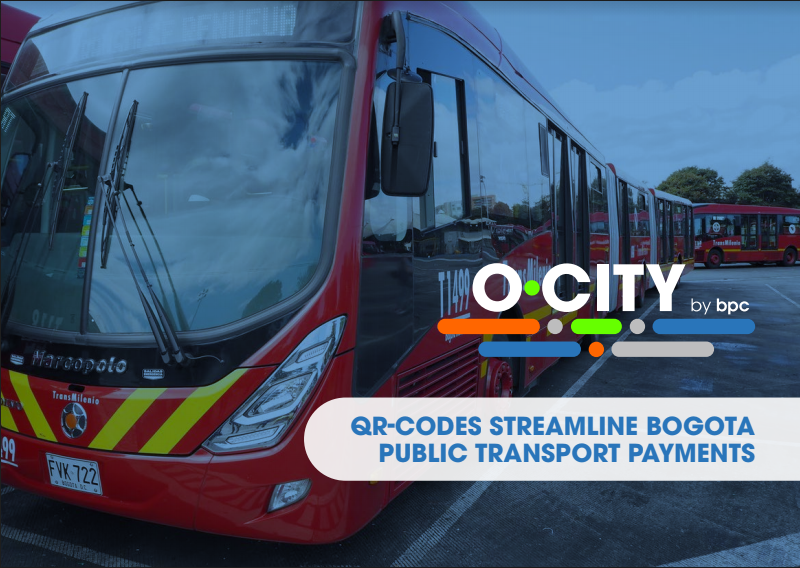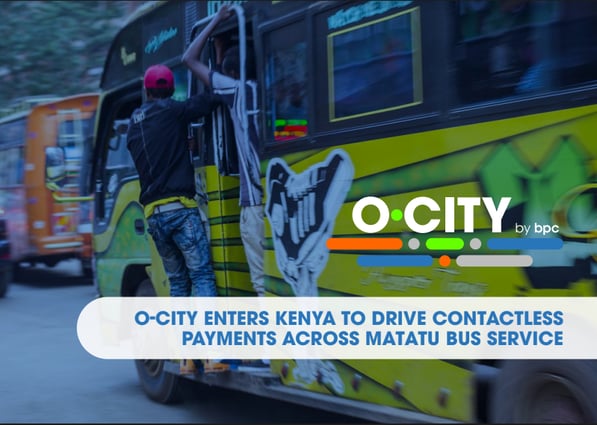The O-CITY platform in action
Adopted by more than 120 cities worldwide, O-CITY is an innovative automated fare collection solution for public transport operators and municipalities. The platform leverages a best of breed payment solution from payment expert BPC available in more than 80 countries.
If you'd like to know more about the role O-CITY plays in digitalising micro payments to enable a cashless economy while improving the well-being of citizens, have a look at these real life use cases of the O-CITY platform.

Key results
- More than 200 000 cards used daily
- 16 Integrated agents
- More than 300 000 average daily rides
Bishkek converts to cashless payments
With a population of approximately 1.2 million, Bishkek is the capital and largest city of the Kyrgyz Republic. The city public transport services are operated jointly by the municipality-owned trolleybus and private bus companies. This fleet includes 300 municipal vehicles and more than 2000 vehicles operated by privately owned minibus operators.
The municipality wanted to increase transparency of payments on public transport as well as increasing revenues. It identified the strategic benefits of introducing a tried and tested Automated Fare Collection platform and redefining the payment experience for travellers and transport providers across the city. A public tender was released and BPC’s O-CITY smart payment platform was awarded the contract.

Key results
- 2 weeks to pilot
- More than 1000 vehicles connected
- More than 50000 rides per month
Uzbekistan kicks off its nation-wide digital payment program in mass transit
Following the 2019 resolution of the Cabinet of Ministers of the Republic of Uzbekistan to automate public transport fare collection, the Ministry of Transport decided to engage in an ambitious digital transformation programme, starting with its capital Tashkent. The government of Uzbekistan was looking for a proven solution that would scale up to its ambitions, with reliable technology that would easily integrate within the existing metro, bus and other public transport systems.
It was decided to opt for an account-based ticketing system and to create an independent limited liability company ATTO which was established with the participation of all local partners, while O-CITY would be the technology powering the automated fare collection solution, leveraging its account-based ticketing technology.
Read the full story, how O-CITY provided a solution, which is pushed country-wide digitalisation.

Key results
- Number of vehicles: 1000+
- Number of validators: 1000+
- Monthly average card users: 12,000+
- Monthly average rides: 50,000+
QR-codes streamline Bogota public transport payments
Bogota, the capital of Colombia, is a megapolis with a population of approximately eight million. Buses are the primary means of transportation with citizens using Transmilenio, the bus rapid transit system which has a fleet of 1500 buses, manages 300 stations covering more than 80% of the city and carries close to three million passengers daily. The network is operated by Recaudo Bogota.
To use the transit system, Colombians needed to carry a card known as ‘Tullave’ (which translates as ‘your key’). Recaudo Bogota provided this closed-loop card system as a means of automating payments on behalf of Transmilenio. The card is distributed through the 300 Transmilenio kiosks. Although the Tu llave card automated payments, it was still posing some challenges such as costly usage, outdated infrastructure, limited choice of payment methods and low speed of service.

Key results
- M-PESA e-wallet integration
- 1500 Matutu buses connected
- 2000 daily passengers
- Mobile application & mobile payments
Kenya to drive contactless payments across Matatu bus service
In the Kenyan capital of Nairobi, the public transport system is dominated by private operators following the city council’s decision to opt for a deregulated market in line with national policy.
Transport payment in Nairobi and other main cities in Kenya was mostly driven by cash transactions. Tracom Services, a payment solutions technology company based in Nairobi needed to introduce a cashless payment platform and leverage the knowledge of an expert in the field who could support this first-to-market initiative. Tracom invited O-CITY to work together on the creation of an open-loop, account-based platform which met the needs of all stakeholders involved in the project. The transformation to cashless was one of the main drivers and a quick and flexible deployment of a reliable and proven system were necessary for success.
